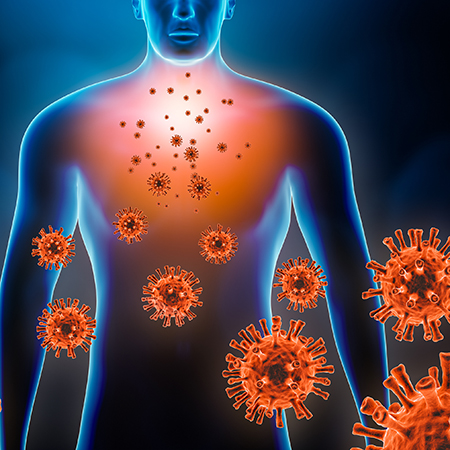‘COVID-19: Preparing for the future’ a report from The Academy of Medical Sciences makes a series of recommendations, including for the healthcare built environment, infection control and workforce planning, saying the NHS must continue to tackle the backlog of patients waiting for routine, non-Covid care, as well as preparing for a seasonal rise in influenza infections and continuing to fight a pandemic that shows no signs of receding in spite of mass population vaccination.
The Academy established an Expert Advisory Group at the direct request of the Government’s Chief Scientific Adviser, Sir Patrick Vallance, to look at the challenges for the health service of the winter ahead for both Covid and non-Covid care, including modelling health outcomes to inform planning, identifying priority areas for action, interventions to manage challenges and ways of achieving lower circulation levels of SARS-CoV-2.
Listed as immediate priorities are: maximising the speed and uptake of the vaccination; increasing the ability of people testing positive to self-isolate with appropriate support – including financial; boosting NHS capacity - both in terms of beds and staff to build resilience against future outbreaks of COVID-19 and other infectious diseases; and clear guidance about environmental and behavioural precautions.
Supporting Covid and routine care in parallel is one of a series of prevention and mitigation measures recommended in this report, alongside: ongoing vaccinations for COVID-19 including a booster campaign and a strategy for younger people, as well as influenza vaccinations; behavioural and environmental interventions such as self-isolation, testing, measures to prevent the spread in workplaces and public buildings through ventilation, and hand and respiratory hygiene; and managing the wider health and wellbeing impacts of the pandemic.
● In reducing the backlog of non-Covid care, robust processes should ensure that access to treatment is prioritised by clinical care rather than length of wait. Restoring hospital bed capacity that has been limited by IPC measures is essential and may require using private sector capacity or surgical hubs to remove this bottleneck.
● Vacancy rates in the health and social care workforce must be addressed to minimise risk of burnout, and improve staff conditions and health, through exploring transferring or sharing duties, retaining retired staff, rapid recruitment, accelerated training, and using private sector capacity.
● Infection prevention and control must remain a key priority in hospital and social care settings and needs to fully reflect emerging evidence of how the virus is transmitted, including airborne transmission. There is a need for full investigation of transmission and outbreaks, prompt and transparent reporting, and publicly available data on rates of hospital-acquired infection so that factors influencing transmission can be understood and mitigated.
● In the longer term, evidence generated on the effective control of COVID-19 in hospitals and other health and social care settings needs to inform the next generation of buildings, and enable renovations of existing spaces to make them respiratory-infection safe.
Healthcare infrastructure
The report acknowledges that the design of healthcare buildings may act as a barrier to compliance with IPC guidance. It calls for a more detailed consideration of the role of buildings and the healthcare environment in the transmission of COVID-19 to determine how this can be improved and managed. This would include evaluating how the environment influences the flow and layout of activities as well as how people interact, the creation of COVID-19-free areas and identifying poorly ventilated spaces in both clinical and non-clinical areas. Whilst there is a need for a national strategy that would evaluate all areas of the healthcare estate and identify where improvements are necessary, in the short term, all NHS Trusts should optimise their estate to mitigate transmission of coronavirus.
Also at the request of the Government Chief Scientific Adviser, the Royal Academy of Engineering is undertaking a project on infection resilient environments. This project is likely to provide further details on improvements that can be made to infrastructure to improve infection control. An interim report has recently been published.
Download ‘COVID-19: Preparing for the Future’ here.











